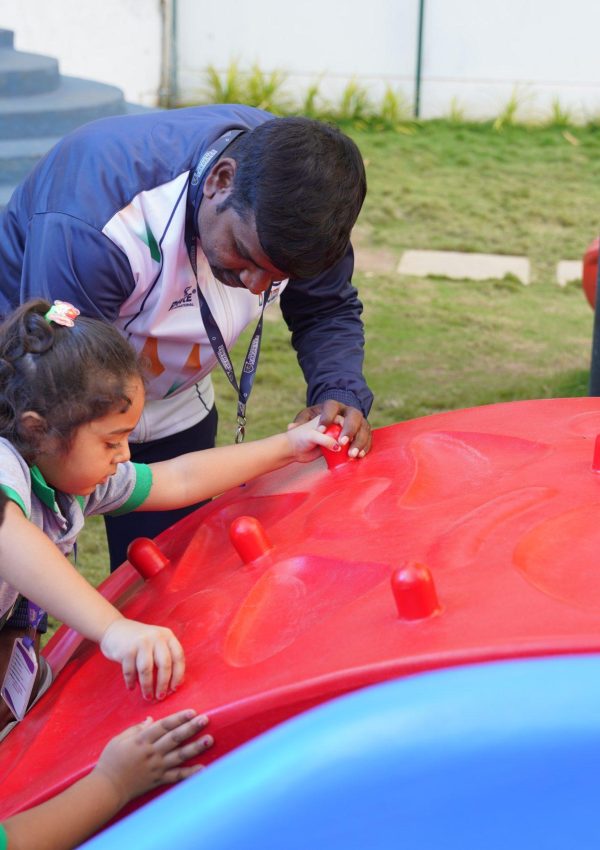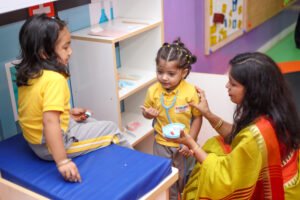As someone who loves learning, I can’t help but be excited about the evolution of preschool education! Over the years, educators have been working tirelessly to develop new methods that make learning more fun, engaging, and effective for children. In this blog, we’ll explore some of the latest trends in preschool education and how they are shaping the future of learning for our little ones.
Let’s jump right in!
The Importance of Early Childhood Education
Before we delve into the latest trends in preschool education, let’s take a moment to discuss why early childhood education is so important. Studies have shown that children who receive quality preschool education are more likely to succeed academically and socially later in life. In fact, early childhood education can have a lasting impact on a child’s life, including improved cognitive skills, better social skills, and increased confidence.

With that in mind, let’s take a look at some of the latest trends in preschool education.
Trend #1: Play-Based Learning
Gone are the days of sitting at a desk and memorizing facts. Today, preschool education is all about play-based learning! This method encourages children to learn through play, using games, puzzles, and other activities to help them develop important skills like critical thinking, problem-solving, and creativity.
 Digital Classrooms
Digital Classrooms
Trend #2: Technology in the Classroom
Technology is playing an increasingly important role in preschool education. From interactive whiteboards to educational apps, technology is being used to make learning more fun and engaging for children. However, it’s important to note that technology should never replace human interaction and should always be used in moderation.
Trend #3: Multicultural Education
As our world becomes more diverse, it’s important for preschool education to reflect this diversity. Multicultural education teaches children about different cultures, traditions, and ways of life, helping them to become more open-minded and accepting of others.
Trend #4: Nature-Based Learning
Nature-based learning is all about getting children outside and exploring the world around them. From nature walks to gardening, this method of education encourages children to develop a deeper appreciation for the natural world while also learning important scientific concepts.
Trend #5: Social and Emotional Learning
Finally, social and emotional learning is becoming an increasingly important part of preschool education. This method focuses on teaching children how to manage their emotions, resolve conflicts, and develop healthy relationships with others. By helping children to develop these skills early on, we can set them up for success both academically and socially.
In Conclusion
The evolution of preschool education is an exciting thing to watch! By embracing new methods like play-based learning, technology in the classroom, multicultural education, nature-based learning, and social and emotional learning, we can help children to develop the skills they need to succeed in the 21st century. So let’s continue to support and encourage our educators as they work to create a brighter future for our little ones!
Frequently Asked Questions
What is the best age to enroll in preschool?
Most preschools typically accept children between the ages of 2 to 5 years old. That is the best age to enroll a child in a preschool.
What should parents look for when selecting a preschool program?
When selecting a preschool program, parents should look for a program that:
- Provides a safe and nurturing environment for children
- Offers a developmentally appropriate curriculum that meets the child’s individual needs
- Has qualified and experienced teachers who are trained in early childhood education
- Encourages social and emotional development through play and socialization activities
- Offers opportunities for parent involvement and communication with teachers
- Provides a schedule and program structure that works well for the family’s needs and lifestyle
- Has positive reviews and recommendations from other parents or professionals.
Is a 3 year old ready for preschool?
Many 3-year-olds are developmentally ready for preschool, as they have begun to develop some level of independence and social skills. However, whether or not a 3-year-old is ready for preschool depends on their individual needs and circumstances, and some children may benefit from waiting until they are a little older to start preschool.







